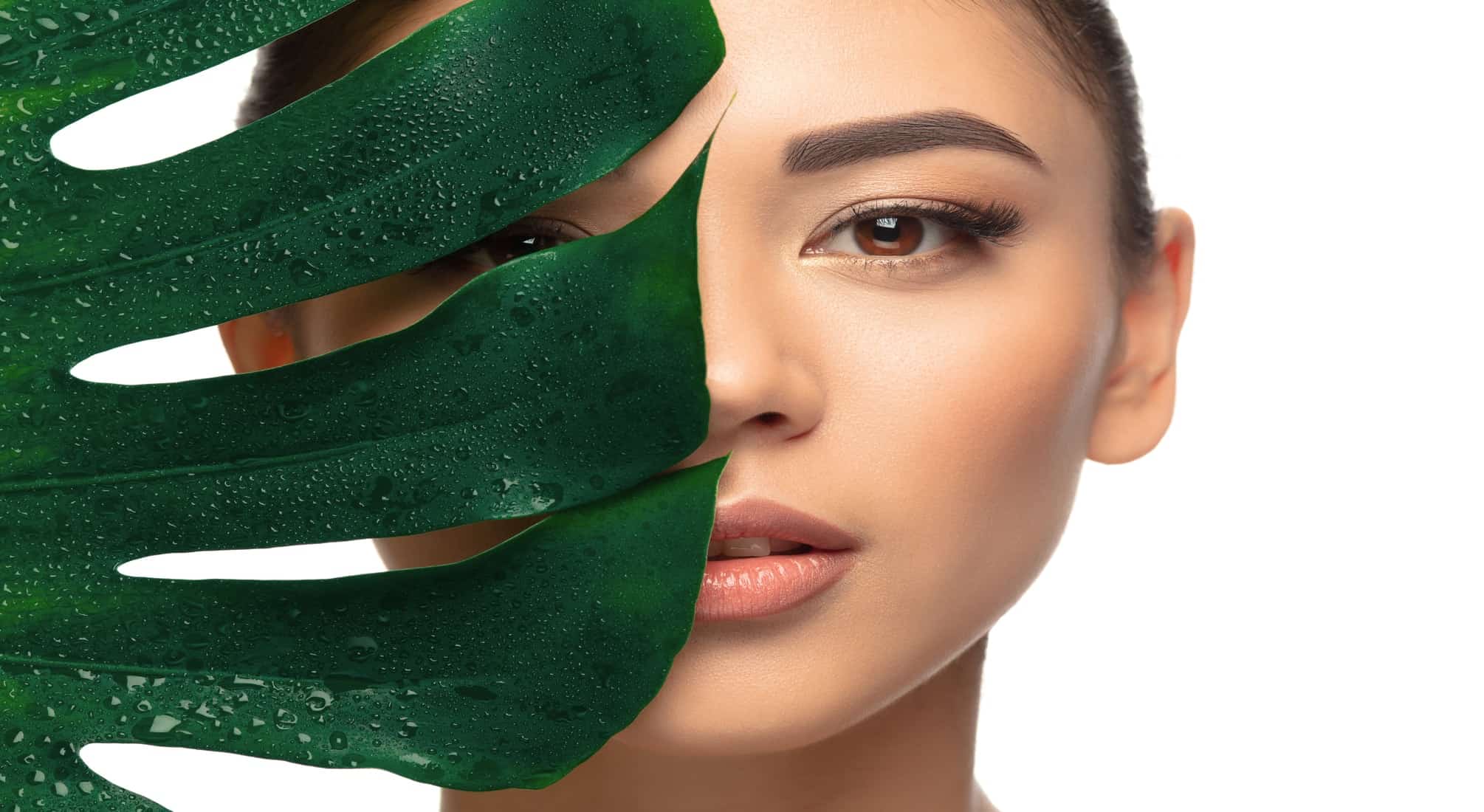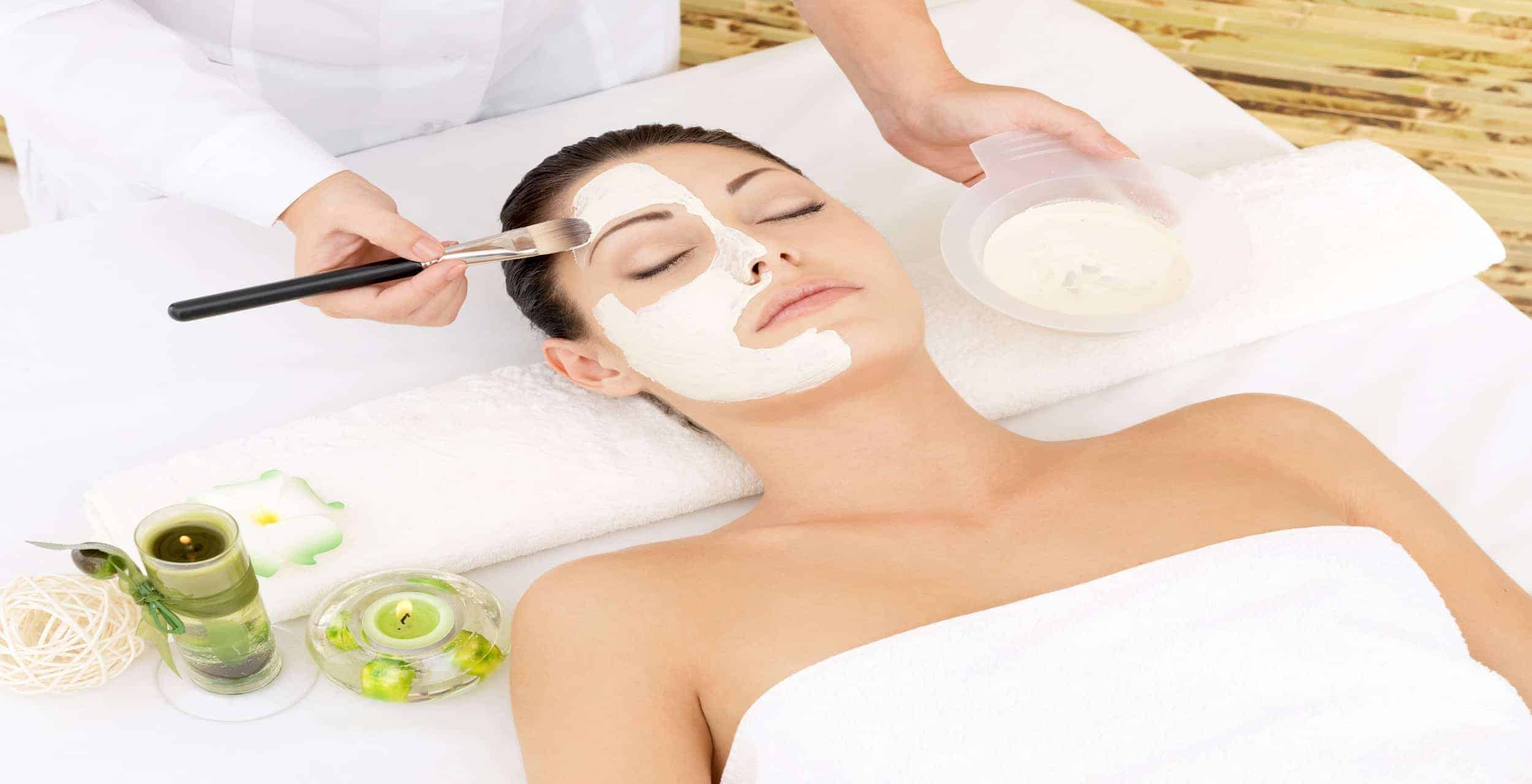Skin care is vital not only for a radiant complexion but also for your health in general. Skin is aesthetically the most important organ of your body. It is also the first line of defense against disease-causing micro-organisms. As such, you must follow a robust, effective daily skincare routine to take good care of your skin. Maintaining a skin care routine for different types of skin, including oily skin, will keep your skin healthy and give you a young, wrinkle-free, glowing look.
In this article, we will share with you some evidence-based information on various skin types, causes of skin damages as well as their remedies. Most importantly, we will discuss the best daily skin care routine for your oily skin.

TYPES OF SKIN
Based on physical and biological features, you can have one of the following 5 types of skin. The skin care routine you opt for depends on the type of skin you have. Hence, check it out!
1. Normal Skin
Normal skin is perfectly moisturized and not excessively oily. It is generally evenly pigmented, clean, and soft. Normal skin has a regular texture and contains no or very little imperfections. This kind of skin needs little care to maintain texture and a healthy appearance. You should always be mindful of your diet and hygiene if you have a normal skin in order to maintain your skin health.
2. Dry Skin
Dry skin fails to retain moisture due to factors like low moisture content of the air, specially in the winter season. The repeated use of warm water for washing may also cause dry skin. In most cases, this skin condition is temporary and goes away as soon as these factors are eliminated. However, in a small number of people, dry skin can be the result of an inadequate production of sebum that helps the skin to retain moisture, hence it may persists for a long life span of time among those people.
Dry skin can become rough and grayish. It can also feel stretched. you may also develop fine lines and even wrinkles if not taken proper care of. Without a daily routine of skin care, dry skin can rupture and eventually become infection-prone. Thus, it is of paramount importance to have good skin care routine if you have dry skin.
3. Oily Skin
Your skin has specialized glands called sebaceous glands. They produce and secrete an oily substance called sebum. Sebum plays an important role in keeping your skin healthy and retain the necessary moisture. However, when secreted in excess, sebum remains on the surface of the skin which results in an oily appearance.
Sebum can clog the pores of your skin, a major cause of acne and a number of other skin problems. As a result, following a specifically designed daily skin care routine for your oily skin is crucial to maintain your skin health.
4. Combination Skin
Combination skin is characterized by a part of the skin being dry and the other part being oily. This is most commonly happened due to differences in sebaceous activity at different areas of the skin.
5. Sensitive Skin
This type of skin is prone to irritation and allergic reaction to substances that are well tolerated by other types of skins. It is more susceptible to infections as well. You need to follow an extensive daily skin care routine to avoid drying and cracking of your skin if you have a sensitive one. Furthermore, you should always check the ingredients present in the skin care products before you use them if you have a sensitive skin.
No matter which type of skin you have, some factors do damage or affect your skin health. Some of them are intrinsic that are natural whereas the others are extrinsic or environmental factors.
INTERINSIC FACTORS AFFECTING SKIN HEALTH

Intrinsic factors that damage your skin are mostly genetic and run in the family. You can’t do much to mitigate the underlying factors. However, you can undertake preventive measures to slow down the skin damaging process caused by these intrinsic factors. Such factors include:
Slow Down of the Skin Rejuvenating Process
Cells in all your organs, except the brain, are being renewed at a certain rate. Your skin is no exception. Skin cells die on an average in three to four weeks. But don’t you worry. The dead cells are replaced by the new ones at the same rate. So, it is said that your skin regenerates every 27 days. However, under certain conditions, particularly as you age, this regeneration process becomes slower. This results in wrinkled skin and loss of that vibrant and glowing look.
Uneven Pigmentation
Melanin is a pigment responsible for the color of your skin. It is produced by the cells called melanocytes. Studies have reported that melanin protects your skin from the damaging impact of ultraviolet rays. As a matter of fact, we all have approximately the same number of melanocytes. However, the amount of melanin produced by these cells in different individuals varies. The more melanin are produced, the darker the skin is. In some cases, melanocytes in a certain area of your skin can produce more melanin than the other part, which leads to an uneven skin texture and dark patches.
Altered Sebaceous Activity
The sebaceous glands in the skin releases an oily substance called sebum. Sebum plays an important role in maintaining skin health. It helps to retain the moisture and lubricate your skin so as to protect it from abrasion. Sebum also protects your skin from bacterial and fungal infections.
The secretion of sebum in men increases gradually from childhood until late teens and then remains fairly constant till around eighty. However, in women, the secretion of sebum decreases gradually after menopause. Increased activity of the sebaceous glands not only turns your skin oily but is also one of the main reasons for developing acne. On the other hand, decreased sebum production may lead to dry skin due to the loss of moisture. As such, affecting your skin health on a major extent.
EXTRINSIC FACTORS AFFECTING SKIN HEALTH

Lifestyle
Lifestyle is an important factor that influences your skin health and looks. Smoking, diet, quality of sleep and drinking, all these lifestyle habits profoundly influence the health of your skin.
Smoking
Have you ever heard of the term ‘smoker’s face’? It describes the facial features that smokers develop over time. Such features include wrinkles, haggardness, and the grayish color of facial skin. For those who smoke regularly, they may experience these skin features.
Smoking is generally bad for your skin health as well as overall health. Nicotine in cigarettes leads to clogging of the blood vessels, particularly those tiny ones in your skin, which results in impaired blood circulation.
Moreover while smoking, your tend to inhale a lot of carbon monoxide, which greatly impairs the binding of oxygen to hemoglobin, the oxygen-carrying protein in your red blood cells. On top of that, smoking reduces oxygen supply to your skin. This further accelerates skin aging and wrinkling.
Smoking also interferes with the absorption of many nutrients. For instance, smoking can reduce the absorption of vitamin C and E. Both of these vitamins play crucial roles in various physiological processes, including skin protection and repair. This shows that smoking can severely impact your skin growth and skin health.
Diet
Your skin health is also profoundly affected by what you eat or don’t eat. Research has reported that high sugar consumption decreases the elasticity of the skin, hence resulting in faster aging. So, if you are fond of cola or other soft drinks loaded with sugar, stop right now for the sack of your healthy skin. Also, drop down the quantity of any food that comes with high sugar content.
Research has also demonstrated that dairy products can increase your likelihood of developing acne. Vitamin C and E, beta-carotene, and selenium are essential for healthy skin. Studies on human subjects also demonstrated that lycopene and beta-carotene present in tomato and carrot respectively can protect your skin from ultraviolet ray induced damage. Therefore, choosing and eating wisely is vital for your skin health.
Always consult with your medical professional before making any changes to your diet and lifestyle. Talk to your dermatologist regarding your own specific skin condition and select the best meal options for yourself. Do more research, seek help from professionals and make correct lifestyle and diet decisions for your healthy skin.
Sleep
Do you know why beauty sleep is so popular among celebrities? It is because when you sleep, your skin along with your body, gets a chance to rest and repair itself from the damage and inflammation.
Studies reported that a lack of sleep increases the release of stress hormone cortisol, which may cause skin problems like acne, eczema, and psoriasis. Lack of sleep or sleep deprivation can also increase wrinkle formation and is a major cause of dark circles around your eyes. According to the National Sleep Foundation, USA, you need 7 to 9 hours of sound sleep to maintain good healthy skin.
Alcohol Consumption
Too much alcohol intake tends to dehydrate your skin and the wrinkles become more prominent. Your skin will also lose its natural glow, thus making it one of the factors affecting your skin health. You should always drink in moderate. Examine your own skin condition, talk to your dermatologist and make wise decision on your consumption.
IMPORTANCE OF SKIN CARE
Skin care routines are designed to foster and maximize your skin health. The objective is to minimize the impact of the intrinsic and extrinsic factors that may damage your skin and causing the loss of its natural glow and healthy appearance.
In order to get a vibrant, glowing and healthy skin, you need to follow a proper daily skin care routine for your particular type of skin at least twice a day. That is once in the morning, and once before you go to bed at night.
Features and conditions of different types of skin are different, so as the skin care routine. The following explores the best daily skin care routine for OILY SKIN.
MORNING SKIN CARE ROUTINE FOR OILY SKIN

The objective of the morning skin care routine for oily skin is to invigorate your skin and prepare it for the rough time ahead — the whole day from the burning sun, airborne dust, and loss of moisture. The followings are the details of the morning skin care routine:
1. Cleanser
When you are sound asleep, your skin slowly repairs itself from the damage caused by UV rays. It also produces collagen that maintains the tone of your skin. However, your skin also collects dust and oil produced by the oil glands during the night which might clog the pores. As such, you must first clean your skin thoroughly in the morning with a cleanser.
Gentle rubbing with any water-based cleanser will remove the excess oil and dirt from your skin. Moreover, this step in your morning skin care routine for oily skin will also help remove any makeup you applied in the evening and prepare your skin well for the next step.
2. Exfoliation
Exfoliation is a crucial process in the skin care routine for oily skin. It is the process of removing the dead cells from the surface of your skin. Dead skin cells tend to stick onto the skin which gives it a dull and rough appearance. The dead cells can also clog the pores. Exfoliation aids in the removal of the dead cells and allows the new cells to emerge on the surface of the skin.
As part of the skin care routine, you can use either physical or chemical exfoliants. Chemical exfoliants containing alpha-hydroxy acids (AHAs) or beta-hydroxy acids (BHA) will peel away the dead cells and reveal new and more evenly pigmented skin.
You can also include physical exfoliants in your skin care routine for oily skin. However, be careful with these products as it needed to be rubbed or scrubbed. If not done properly or done frequently, physical exfoliants can cause irritation and abrasion to your skin.
3. Toner
Now that you have done with the first two steps of your daily skin care routine for oily skin, that is cleaned your skin with cleansers and got rid of the dead cells by exfoliation, it is time to remove any residual oil and dirt or impurities from the skin. Toner will do it efficiently. It will also help to reduce the pore size and the gaps between the skin cells, minimizing the penetration of further dust and other impurities during the day. The best time to use the toner is right after you finish exfoliating and wash your face. Applying toner to the damp skin helps the toner to reach deep in your skin and remove any impurities thoroughly.
4. Targeted Treatment
Your daily skin care routine provides you with the opportunity to address any specific skin problem you have. If you have a specific skin problem or you want to achieve a specific goal, this is the step where you apply the concerned treatment. For instance, if your goal is to remove the wrinkles and fine lines, apply an anti-aging cream at this stage. If you want to brighten your skin, then apply a brightening cream. For oily skin, it is better to use lightweight treatments as they are better absorbed by oily skin.
5. Moisturizer and Eye Cream
Once you have applied the nutrients, it is time to lock them in to facilitate their efficient penetration. This is done by applying moisturizer. For oily skin, it is better to avoid moisturizing creams, as they may clog the pores. Instead, you can use emulsions or gel-type moisturizers. There are a variety of moisturizers available nowadays. You should select one that suits you best. Consider any skin issues like skin sensitivity and irritability before opting for a particular moisturizer. Always consult with your dermatologist before making any significant changes on your skin.
You can also apply eye cream at this point to protect your under eyes. The best eye creams for an oily sink is the lightweight one.
6. Sun Screen
Finally, you have to apply sunscreen to protect your skin from the ultraviolet (UV) rays. Studies have shown that UV rays can speed up aging by interfering with the synthesis of collagen and elastin. It can also cause erythema as well as skin cancer. Recent studies demonstrated that UV rays can also suppress your immune system, thereby increasing your susceptibility to infectious diseases.
There are two types of ultraviolet rays termed UVA and UVB. For your daily skin care routine, you should use a sunscreen that will protect you from both UVA and UVB, instead of regular sunscreens that mainly absorb UVB. Use a sunscreen with a Sun Protection Factor (SPF) of at least 30 or above. You can also use waterproof sunscreen. Whatever sunscreen you select for your daily skin care routine for your oily skin, remember to use it generously for optimum protection. You should apply sunscreen at least 15 minutes before you go out. Also don’t forget to apply it to all skin surfaces exposed to the sun, including your neck, hands and legs.
Sunscreens based on organic or inorganic active ingredients are available. Organic filter based sunscreen contain organic compounds like cinnamates, benzophenones etc, which absorb the UV light. However, these ingredients can irritate sensitive skin.
Inorganic filter based sunscreen, on the other hand, contains inorganic compounds such as titanium dioxide that reflect UV light. Inorganic filter-based sunscreens are known to be less irritating to the skin.
Remember to apply sunscreen on cloudy days as well. UV radiation can penetrate through the cloud.
7. Lip Balm
On top of everything, you may also apply lip balm to protect your lips. Using one with SPF above 30 will also protect your lips from damages caused by UV radiation.
EVENING SKIN CARE ROUTINE FOR OILY SKIN

Research has shown that the factors, particularly the UV radiation, that damage your skin in the day can go on damaging it even in the dark. Fortunately, at night, your skin enters the repairing and rejuvenating phase. As such, the objective of the evening skin care routine for oily skin is to help and enhance the skin recovery process. Following steps will help your skin to minimize the damages that occurred during the day and rejuvenate it to a vibrant complexion.
1. Cleanser
Whether you had a busy day or a relaxing one, your skin has surely collected dust and derbies the whole day. Besides, salt particles present in the perspiration might have also settled on the surface of your skin. And the makeup you wore is also there to be removed. So, you must cleanse your skin thoroughly in the evening.
For oily skin, use an oil-based cleanser first to remove the makeup and the sebum. Then clean your skin once more with a water-based cleanser thoroughly.
2. Toner
Apply toner to further clean your skin. However, if your skin feels too dry after applying toner, use a toner that helps retain the moisture or apply toner once a day, instead of twice – in the morning and the evening.
3. Exfoliation
You can also exfoliate at night. But do not exfoliate more than twice or three times a week, or else your skin may be scratched.
4. Nourishments
Your skin is taking care of itself in the evening. You can expedite the process of skin repairing and rejuvenation by providing various skin nourishing ingredients such as antioxidants and vitamins as required for your skin. Apply skin nourishing creams or sheet masks. If you opt for the cream, include a lightweight one for your skin care routine for oily skin.
5. Moisturizer, Eye Cream & Lip Balm
Make sure your skin does not lose moisture at night by applying moisturizer. Also, apply eye cream around your eye to prevent the area from drying. You may also apply lip balm to protect your lips at night as well.
Skin is a sensitive part of your body. To keep it healthy, glowing and vibrant, you have to take proper care of it. We have shared with you various tips regarding the skin care routine for oily skin. Hope this will help you in keeping your skin healthy and beautiful.





0 Comments